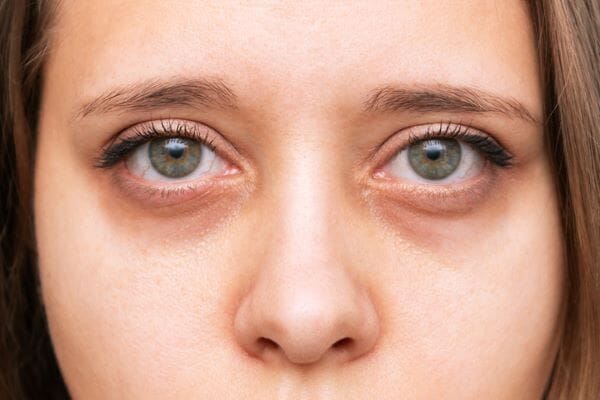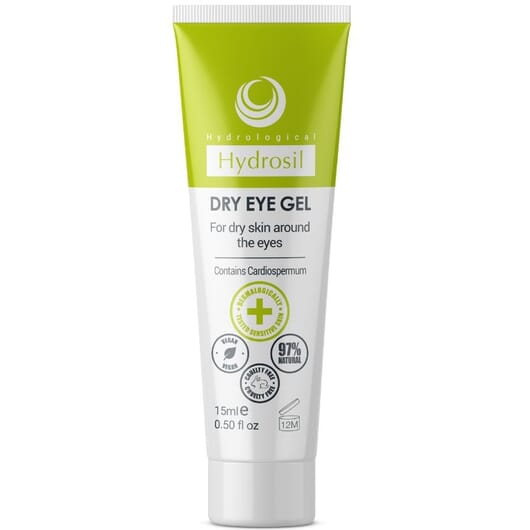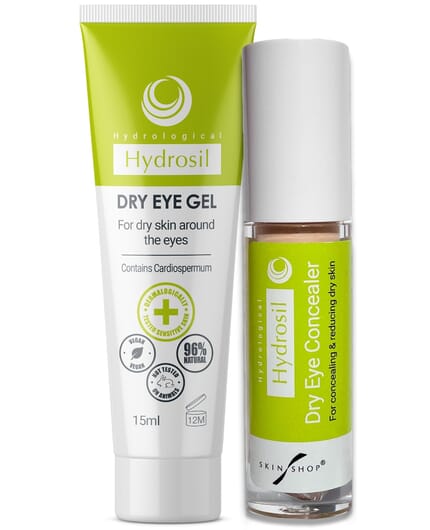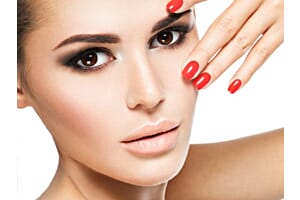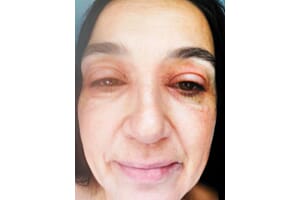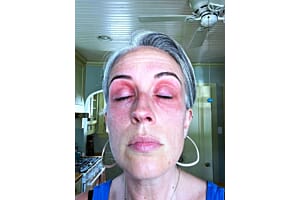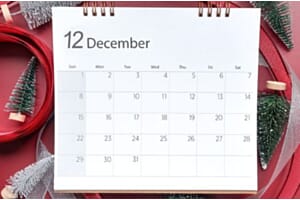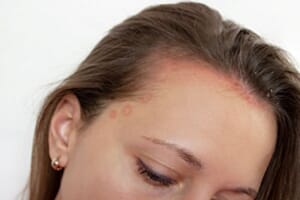Under-eye swelling is a common cosmetic concern, but it’s even more likely during the festive season.
The skin around your eyes is thin and delicate. Most people will experience under-eye swelling occasionally, and it will usually go away without treatment.
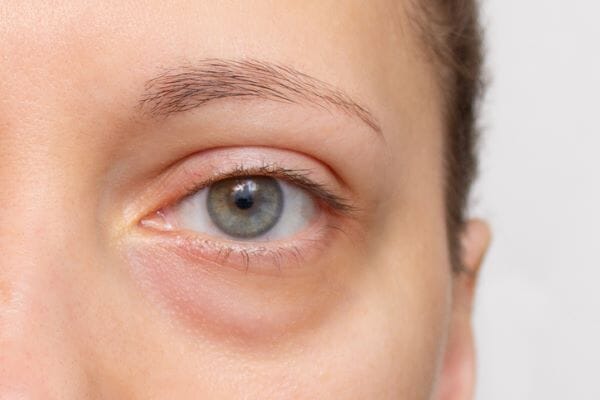
Dermatologist Dr Eva Melegh highlights six reasons why you might experience festive puffy eyes and tips on how to prevent them.
1.Eating too much salt
Extra sodium can make your body retain water. The excess water causes puffiness in the face and body. This is especially common the morning after a salty meal.
The thin skin around your eyes is at higher risk of getting puffy. This leads to under-eye swelling or the appearance of under-eye bags. Your body will naturally eliminate the bloating and de-puff your eye area. This may take a few hours or longer.

Cut salt in your festive diet to help soothe under-eye swelling. Limit or avoid processed and packaged foods and meats that have added salts. Drink plenty of water to help flush out the sodium.
2.Not enough sleep
A research study found that not getting enough sleep can give you under-eye swelling. It can also cause droopy eyelids, red eyes, and dark circles under the eyes.

A lack of sleep can weaken the muscles around your eyes. It can also lead to a loss of collagen, the elastic tissue , under the eyes. This causes fluid to collect in the area, making the area beneath your eyes to swell up.
Under-eye swelling because of little sleep may last a few to 24 hours.
3.Christmas allergies
Allergies can cause fluid to build up in your sinuses and around your eyes. This can lead to under-eye swelling. An allergic reaction can also make your eyes red, itchy, and watery.

Common festive allergens include house dust mites, cigarette and cigar smoke, animal fur, perfumes in scented candles, pine needles and pinecones.
4.Cosmetic gifts
Getting new perfumes and cosmetic for Christmas is a lovely gift to receive but your eyes and skin might be less delighted.

If you suffer from sensitive skin, using a new perfume or new cosmetics from brands you are not used to using can trigger a bout of contact dermatitis around your eyes and on your eye lids.
5.Blocked tear duct
Your tear ducts drain away tears and natural water in the eye. If they’re blocked, the fluid may collect around the eye. This can lead to under-eye swelling.
Tear duct blockages are often caused by makeup particles especially if you have been wearing eye make up with glitter in or heavier darker colours. In most cases, it clears up on its own after a few days.
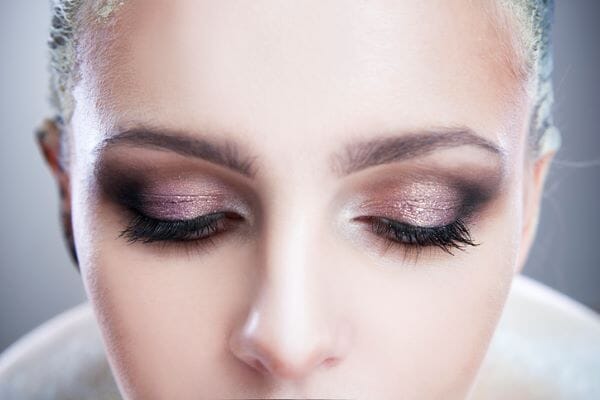
Normally, a warm compress and washing out the eye with sterile saline help clear the blockage. In more serious cases, you may need treatment.
6.Dry Air
Dryness due to central heating inside stuffy houses at Christmas and lower humidity of the colder weather outside is a sure way to end up with puffy festive eyes as the eye socket simply isn’t lubricated enough.
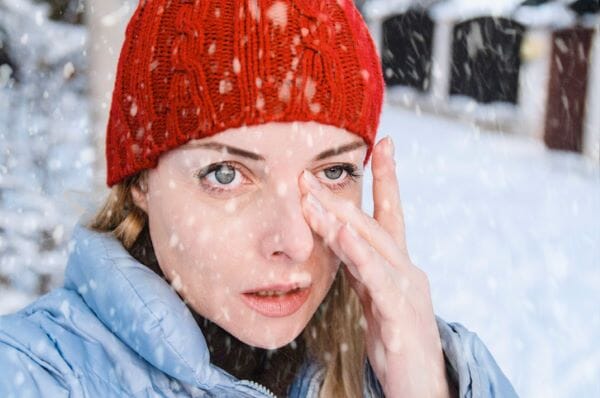
How to reduce puffy festive eyes
Use an anti-inflammatory & protective eye gel under make up
Using an eye gel that contain anti-inflammatory properties can help prevent minor contact allergies from makeup and allergens as well as eye eczema flares.
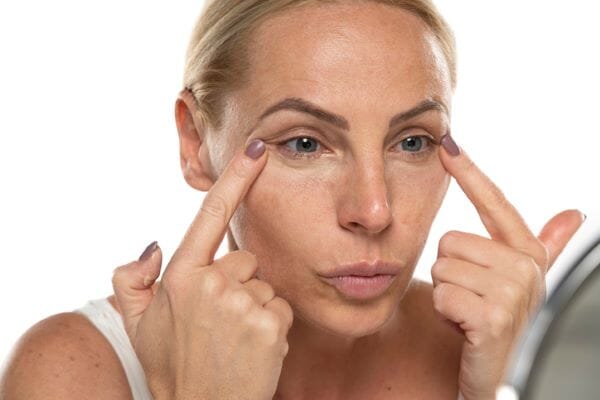
Try Hydrosil Dry Eye Gel which contains a plant-derived phytosterol that mimics the action of steroids but without the associated risks and helps to control minor skin reactions, redness, swelling and itching around the eyes and on the eye lids. Worn under make up it has a protective element.
Get a good night’s sleep
There is a reason why beauty experts recommend you sleep for at least seven hours. Not only will it prevent dark circles, but it keeps those bags at bay too.
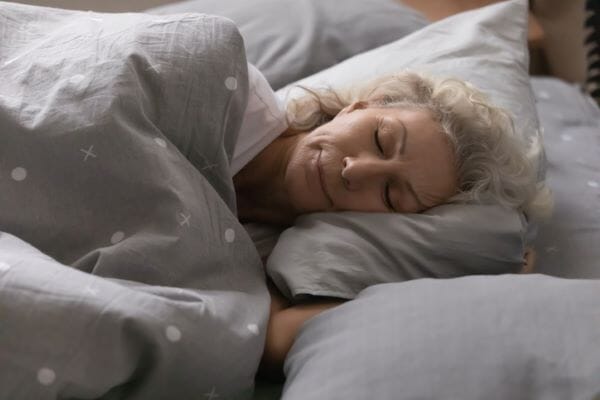
Moreover, you should also watch the way you sleep. Sleeping with your head slightly raised can prevent fluid from building up around the eyes. Add an extra pillow under your bed.
Remove makeup before bed
If you feel too lazy to remove makeup before going to bed, don’t do it, as it is a huge mistake. Falling asleep with eye makeup on will almost certainly cause morning puffiness.
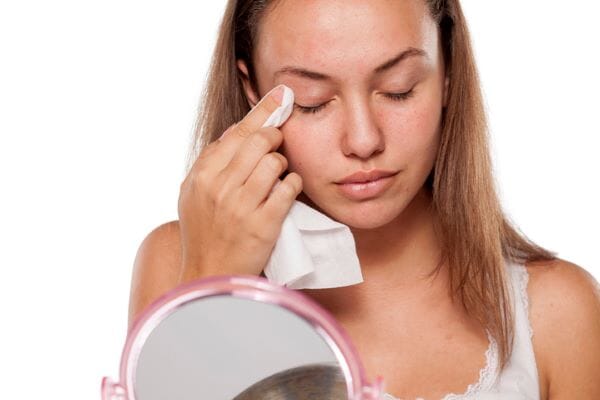
Cleanse your skin thoroughly prior to sleeping.
Use Moisturising Eye Drops
Over the festive season is a good idea to invest in some moisturising eye drops and use them twice daily as a preventative measure.
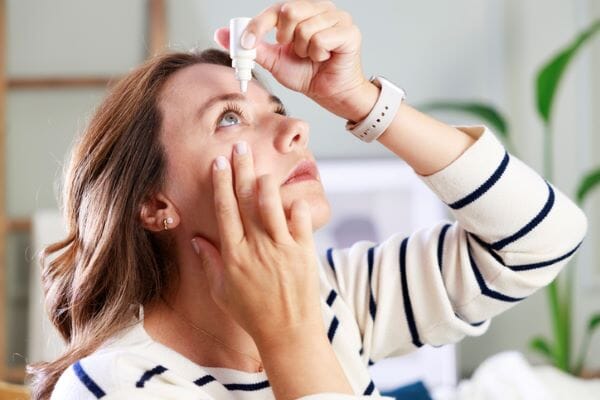
Pass on the heavy eye creams
It’s tempting when the air is dry to use heavier eye creams around the eyes to compensate. However, although this may moisturise the skin around the eyes it can end up making the eyes puffy. Stick to lighter serums and try and find one with caffeine in as caffeine solutions can help bring down puffiness.
Store eye products in the fridge
Cold contact can help reduce eye puffiness so storing your eye products in the fridge can deliver similar results as s cold compress.

When you are ready to use the product, take it out of the fridge, and apply it with your fingertips in small dots around the eyes, and massage gently till it gets fully absorbed.
Slash your salt
As mentioned above, a high-sodium diet can lead to under eye bags, so you need to be careful about what you eat.

The body retains water, which makes the whole body puffy. You have to reduce overall salt intake, not give it a boost. That doesn’t mean you can’t have the odd pig in blanket just don’t binge on high salt foods.
Do less dairy
Dairy foods are highly inflammatory and can cause swelling, especially if you are allergic to it.

Go easy on the cheese boards and custard and cream and the puffiness under your eyes may subside.
Skip the sweet treats
Cake, chocolate and cookies are scrumptious of course, but white sugar is one of the most inflammatory foods you can eat so may not help with the eye puffiness.



